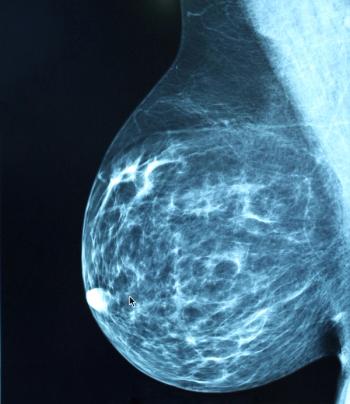
Oncology NEWS International
- Oncology NEWS International Vol 7 No 1
- Volume 7
- Issue 1
Congress Approves NCI Appropriations, Passes FDA Reform Act
WASHINGTON-In the waning weeks of the 1997 congressional session, the House and Senate passed, and President Clinton signed, several pieces of legislation of significance to the oncology community, including the National Cancer Institute appropriation bill and the Food and Drug Administration “reform act.” But the Congress left some tough issues, including legislation to implement the proposed tobacco settlement, until it returns in 1998.
WASHINGTONIn the waning weeks of the 1997 congressional session, the House and Senate passed, and President Clinton signed, several pieces of legislation of significance to the oncology community, including the National Cancer Institute appropriation bill and the Food and Drug Administration reform act. But the Congress left some tough issues, including legislation to implement the proposed tobacco settlement, until it returns in 1998.
Both the National Institutes of Health and the National Cancer Institute won boosts in their budgets well above the inflation rate. NIHs overall funding for fiscal 1998, which began Oct. 1, went to $13.647 billion, an increase of $907 million, or 7.1%, over fiscal 1997. The final number, worked out in a drawn-out conference committee that resolved differences between the appropriations bills passed by the House and Senate, fell between the Senates 7.5% increase and the 6% hike initially approved by the House.
The NCIs fiscal 1998 budget rose a little more than $158 million, or 6.6%, to $2.547 billion. The Senate had approved an increase of 7.1% and the House had okayed a 5.2% hike.
Although the conference agreement did not set a specific amount for NIH-funded AIDS research, the committees report did note an understanding that NIH would spend $1.595 billion on such work. In addition, the appropriations bill provided $40.536 million to fund the office of AIDS research within the NIH directors office.
Congress boosted the FDAs budget to $1.03 billion, up $35 million from fiscal 1997, $105.2 million of which will come from fees paid by drug and medical device makers.
And after resolving a divisive issue regarding the regulation of medical devices, Congress also passed the FDA Modernization and Accountability Act of 1997.
In addition to streamlining the way FDA approves new drugs and medical devices, the bill makes it easier for seriously ill patients to obtain experimental drugs, sets up a fast-track system for approving medications for life-threatening diseases, renews the 5-year-old user fee system for pharmaceutical companies, and allows companies to provide certain information about off-label uses of their products.
Under the new law, manufacturers of drugs, biological products, and medical devices may provide a variety of health care professionals, insurers, benefit managers, and federal and state agencies certain written information concerning the safety, effectiveness, or benefit of a use not described in the approved labeling of a drug or device.
Sen. Connie Mack (R-Fla), a key sponsor, said that the provision will allow dissemination of the best scientific information available on new uses of pharmaceutical drugs and medical devices.
Renewal of User Fee System
The FDA legislation also provides for a 5-year renewal of the user fee system. Under it, pharmaceutical companies pay extra fees so that the FDA can hire more reviewers and speed up the drug approval process. In the 5 years since its inception, these companies have paid the FDA some $327 million, according to the Pharmaceutical Research and Manufacturers of American, which estimates that amount will reach about $600 million in the coming 5 years.
The new measure also directs FDA to establish a toll-free telephone number so that physicians and patients with life-threatening diseases can find out quickly what clinical trials patients might enter.
Facilitating access to this information can help doctors and their patients with diseases such as cancer, Parkinsons, and Alzheimers learn about research underway and can expand the pool of research participants, said Sen. Dianne Feinstein (D-Calif), who co-sponsored the provision.
The FDA bill won approval after a House-Senate conference committee resolved a conflict regarding how much power FDA would have over the marketing of medical devices. A Senate provision would have prevented the agency from testing medical devices for uses other than those the manufacturer claimed on its labeling, a restriction that led to threats of a presidential veto. The new law gives FDA the power to investigate devices for all marketed purposes.
Tobacco Windfall Repealed
Congress also repealed a potential $50 billion windfall for the tobacco industry included in the tax-cut bill passed last summer. That provision would have allowed tobacco companies to write off $50 billion of the $368.5 billion they would pay in the proposed tobacco settlement.
This amount equals the estimated revenue that a 25-cent-a-pack cigarette tax increase included in the tax-cut bill will raise over 25 years. The tobacco industry must understand Congress will no longer do its bidding, said Sen. Richard J. Durbin (D-Ill), a leader in the repeal effort.
The House and Senate also barred the use of federal funds to promote American tobacco products abroad and restricted federal employees from contesting the health regulations of other nations designed to reduce smoking. This measure reflects a clear, ethical, national policy consistent with how we want our own children protected, said Rep. Lloyd Doggett (D-Tex), the provisions sponsor.
Articles in this issue
about 28 years ago
Interferon Improves Survival In CML: 10-Year Follow-upabout 28 years ago
Update on Breast Cancer Chemoprevention Trialsabout 28 years ago
Topotecan Plus Cytarabine Promising in MDSabout 28 years ago
Update of Letrozole Pivotal Trials in Advanced Breast Cancerabout 28 years ago
Arguments Against Mammograms for Age 40-49 Refutedabout 28 years ago
Proton Beam Therapy Appears Safer than Prostatectomy, X-raysabout 28 years ago
RT Effective Palliation for Malignant Melanomaabout 28 years ago
Metastatic Breast Cancer Responds to Docetaxel, Doxorubicin, Cytoxanabout 28 years ago
Prevention of Breast Cancer Begins With Public Health Education on RisksNewsletter
Stay up to date on recent advances in the multidisciplinary approach to cancer.



































